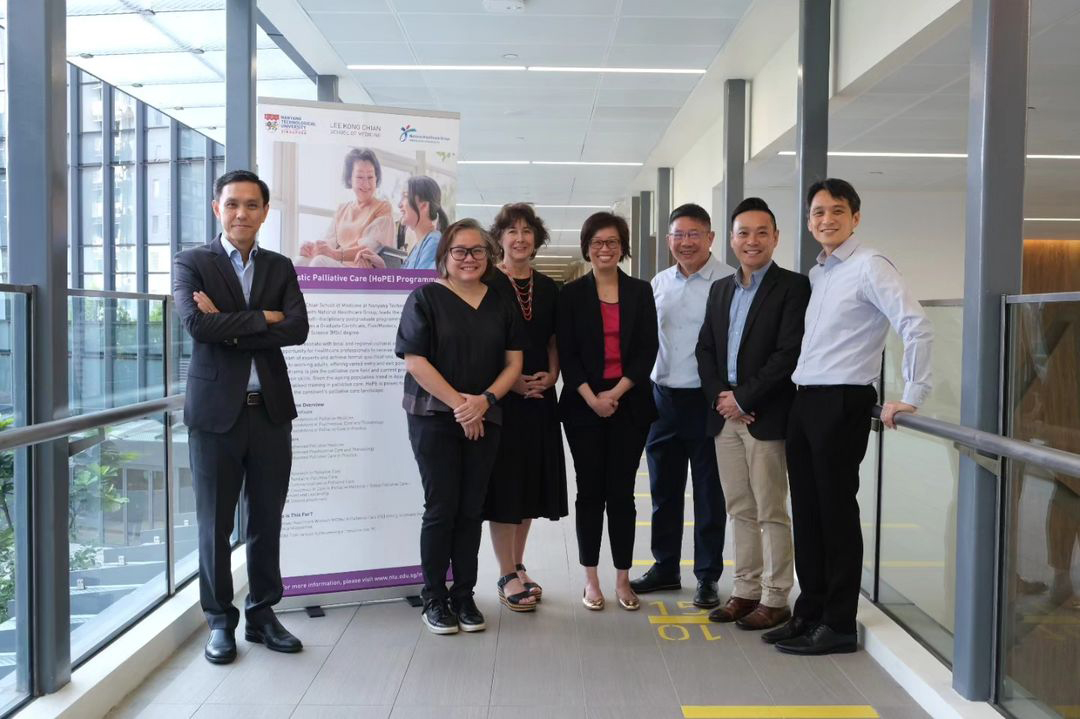News: Asia’s first ‘stackable’ Master of Science in Holistic Palliative Care (HoPE)
 | By Sanjay Devaraja, Editor, The LKCMedicine |

LKCMedicine, in partnership with the National Healthcare Group, has launched Asia’s first ‘stackable’ Master of Science in Holistic Palliative Care (HoPE), designed for healthcare professionals seeking to enhance their expertise in palliative care. Delivered by the Palliative Care Centre for Excellence in Research and Education (PalC), a joint initiative of LKCMedicine, the National Healthcare Group, and Dover Park Hospice, this programme offers a comprehensive curriculum that addresses both the medical and psychosocial dimensions of end-of-life care.
Specifically tailored to the nuances of Asian culture and context, the HoPE programme promises to be particularly pertinent to the needs of the region's diverse population. Vice-Dean of Education at LKCMedicine, Professor Jennifer Cleland said, “(The course) emphasises the multidisciplinary nature of suffering and its management in different healthcare settings. The various modules also provide a strong focus on end-of-life care in an Asian context.

She added that while there are other master’s programmes in palliative care offered across the globe, “there is none in Asia or with an Asian context that covers cultural, religious and familial aspects”. The Asian-centric focus also helps enhance the palliative care ecosystem across the region, where increasingly there are challenges of rapidly ageing populations and manpower development needs in palliative care.
While governmental bodies and social organisations may endeavour to construct additional infrastructures to meet the increasing demands for palliative care, the presence of proficient healthcare workers serves as the fundamental cornerstone for maintaining a high standard of care within end-of-life care settings.
According to the 2015 Quality of Death Index, which was commissioned by the Lien Foundation, Singapore held the 12th position globally and the 2nd position in Asia, trailing only behind Taiwan, which ranked 6th globally. The assessment of end-of-life care quality in Singapore was based on various factors including the palliative and healthcare environment, the availability and proficiency of healthcare professionals and support personnel, affordability of care, quality of care provided, and community involvement.
Within this evaluation, Singapore identified areas for enhancement, particularly in the realm of healthcare worker training. Addressing these deficiencies in healthcare worker education presents an opportunity for HoPE to spearhead advancements in palliative care both locally and across Asia.

The programme will be taught by a multidisciplinary faculty and designed by palliative care experts to address the unique challenges within Singapore and Asian communities. It also supports the growing demand for professional training and manpower development in the palliative care landscape, which includes palliative care for terminal and end-stage chronic disease patients in hospices, at the homes of patients, and in healthcare institutions.
The programme is also customised to be “friendly” to working adults through its stackable design that provides multiple entry and exit points in the training pathway, enabling new healthcare workers to join the palliative care workforce and for existing healthcare workers to upgrade their skills and capabilities.
The course starts in August. Registration for the HoPE graduate certificate programme opened in January and will end on 5 July 2024.
